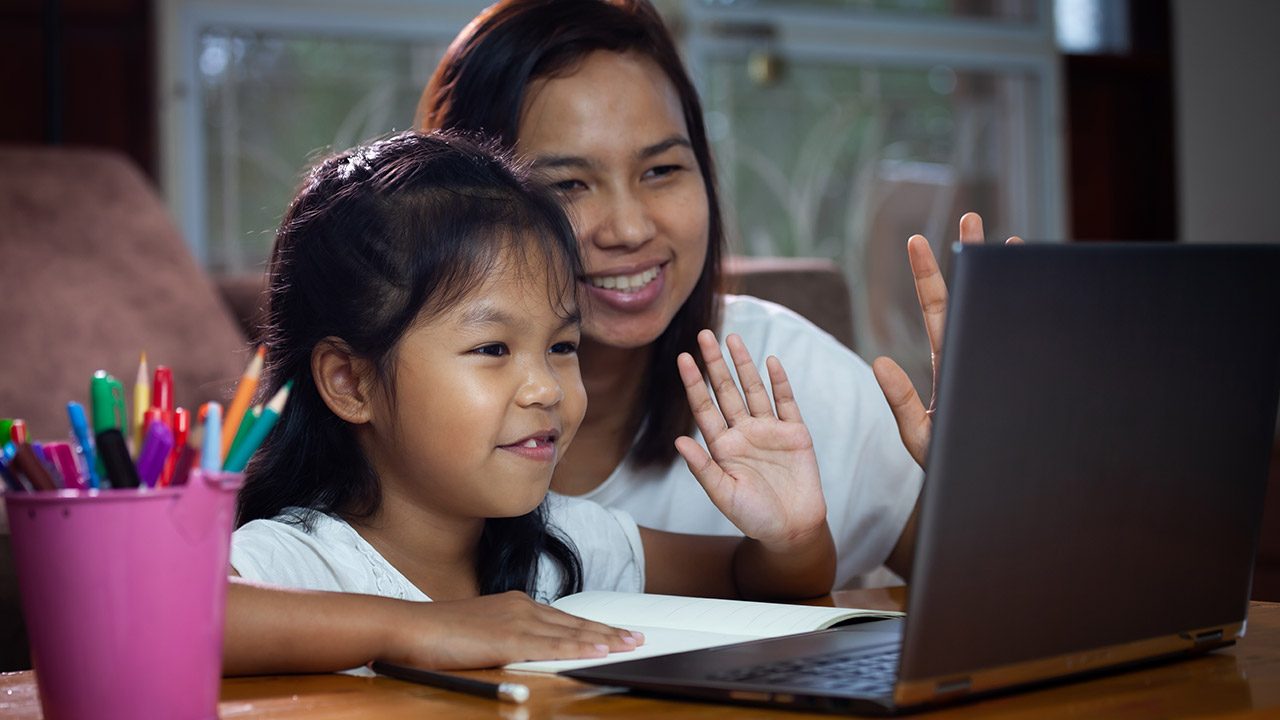SUMMARY
This is AI generated summarization, which may have errors. For context, always refer to the full article.

While students pursue their education at home during the pandemic, parents play an important role in helping their children make the transition to this new learning set-up.
To ease the process, Philippine Guidance and Counseling Association public relations officer Francis Ray Subong said that parents must practice the mantra of being “MAD”: mindful, attentive, and disciplined.
Since August, Subong has been speaking in webinars to explain his method of helping children adjust to online learning.
Being an educator at Iloilo National High School and a parent, Subong took off from his own experiences and coined the mantra to help parents who want to play an active role in easing their children’s transition to online learning.
Be mindful
To able to help their children, parents must first understand their habits and needs at home, Subong said.
As schools and other places of learning remain closed given the pandemic, Subong said that spending more time on the internet may be a “need” for students as they have to be online for their classes, do research and other school work, and interact with their friends and teachers.
Subong dispelled the notion that children are always on the internet just for social media or to play games. He advised parents to understand the pattern of their child’s internet use and set limits that are reasonable for them and their needs.
He said that parents who may not fully understand this dynamic might end up confiscating gadgets or cutting off internet connectivity as a form of punishment, especially when they feel that their children are almost always on their phones.
This may lead to children missing out on their classes or stopping in the middle of a research task, hindering their learning.
Subong said that doing something that fails to address your child’s new needs could lead to misunderstanding and arguments. Parents, he said, “have a big obligation to know the world of their kids.”
Be attentive
Fatima Olga, an educator at Romblon State University who took up a master’s degree in psychology, major in clinical psychology, said that parents should also pay close attention to changes in their child’s behavior.
She said that the current online learning set-up causes more stress for students as they face heavier workloads, faster time limits for quizzes and exams, and even internet connectivity issues.
Students may also experience separation anxiety since they can no longer see their friends and teachers like they used to.
According to her, children’s stress can manifest in a lot of ways, but the most obvious is in their behavior.
“[You will notice] changes in behaviors, especially if you’re their mother. You will notice them staying up late for no apparent reason; they would self-isolate from friends and family; they would not eat at proper times, or when you’re talking to them, they wouldn’t look at you eye-to-eye,” Olga said in a mix of English and Filipino.
She added that students may become irritable, get lower grades than usual, and exhibit poor decision-making skills due to stress.
Parents, however, can guide their children to take on a more manageable learning habit that aligns with their capability.
Olga suggested making a structured schedule that’s similar to one that children follow in school. She added that if schools have a recess period, learning at home should also have breaks between sessions. (Read: School survival guide: 5 tips to get you ready for online classes)
Parents must also learn how to navigate the school’s online learning platform, according to Olga. It would help them connect with teachers and other parents to discuss what their child needs to do.
According to Olga, it helps if parents can be beside their kids when they are doing school works and other tasks, so they can provide emotional and mental support to ease their stress.
Be disciplined
Parents can help discipline their children so they avoid overexerting themselves for their classes.
Subong said they can start by setting limits for their children, so they won’t compromise their health for productivity. Parents can also monitor their children’s use of gadgets and follow Department of Education’s (DepEd) suggested screen time for students.
Another way is to set a daily plan of goals that they can meet to stay on track with their studies. Olga said this schedule can help serve as a reminder to children that they are not on vacation.
“They cannot be in front of the computer 24/7. There must only be a time when they’ll do schoolwork and when they have to rest,” she said.
However, disciplining children doesn’t necessarily mean imposing rigid rules.
“If their child is not acting well, that’s when they can reprimand them without raising their voice. But if they did well and they deserve rewards, give them candies and additional time for gadgets, but not too much,” Olga said in Filipino.
Nothing beats parents’ love and support
Both Subong and Olga agree that parenting is not a one-size-fits-all. However, at the end of the day, all that kids need are love and support from their parents.
Olga stressed that parents must give time to their children and find ways to be seen as a refuge by their kids, especially now that they cannot physically interact with their friends.
“Parents cannot fill the needs that a child gets from their friends but parents can adjust. Be more open to them; if they have problems and you have work, leave it first and attend to them,” she said.
Ultimately, both experts advised parents to take things slow.
“Don’t pressure yourself that everything has to be perfect. Forgive yourself if you feel like you feel you’re not perfect… Everyone is having a hard time. One step at a time and take it slowly,” Olga said. – Rappler.com
Add a comment
How does this make you feel?




![[Two Pronged] My daughter wants to go to UP, but my husband insists on a ‘good Catholic school’](https://www.rappler.com/tachyon/2024/02/two-pronged-university-issue.jpg?resize=257%2C257&crop=375px%2C0px%2C1080px%2C1080px)
![[OPINION] Development in the delay: Reflections on being a new mother](https://www.rappler.com/tachyon/2024/02/development-in-the-delay-february-12-2024.jpg?resize=257%2C257&crop=438px%2C0px%2C1080px%2C1080px)
There are no comments yet. Add your comment to start the conversation.